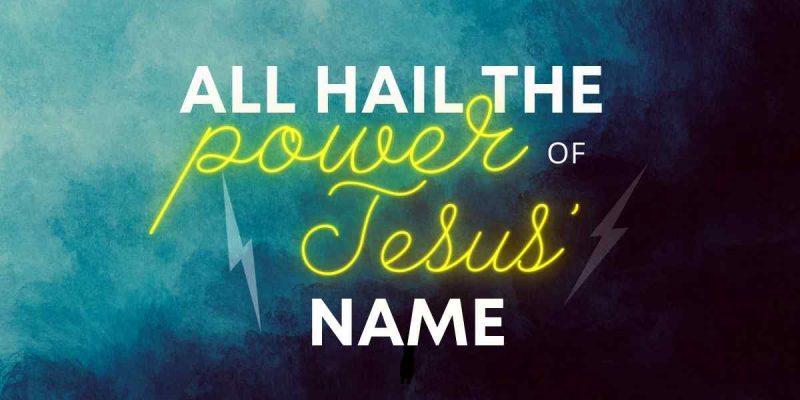This hymn, often called the “National Anthem of Christendom” is one of the all-time top 10 English hymns. It was written by Edward Perronet, a co-laborer with John and Charles Wesley. John tried in vain to convince Perronet, 18 years his junior, to preach but he would not. However, one day John announced to the congregation that Perronet would preach the next morning. When Perronet stood before the crowd he declared, “I will now deliver the greatest sermon ever peached on earth.” He proceeded to read the Sermon on the Mount and sat down. He made no comments. A song and a prayer finished the service.
He joined John and Charles Wesley in their evangelistic efforts and religious persecutions. Like the Wesleys, he was no stranger to mistreatment by unbelievers (his family fled Switzerland and England because of it). After an attack by an angry mob of insurgents whom Perronet valiantly opposed, Wesley records in his journal: “Edward Perronet was thrown down and rolled in mud and mire. Stones were hurled and windows broken.” Three years later, Charles tells of a journey he made to London with his brother John and Perronet, “We were in perils of robbers who were abroad and had robbed many the night before. We commended ourselves to God and rode over the heath singing.” They survived.
Years later, Perronet’s hymn saved the life of a 19th century missionary to India. Rev. E. P. Scott had seen a man on the street whose appearance was so unusual that he had to know more about him. He discovered that the man belonged to the Naga tribe, a wild mountain tribe among whom Christ had never been preached. Mr. Scott prayed fervently and, against the advice of his fellow missionaries, decided to visit that tribe. As soon as he reached their mountain home, he was captured by tribesmen who were on a war expedition. They seized him, pointing their spears at his heart. Immediately, the missionary knelt down, took out the violin that he always carried with him, and began to play and sing this hymn in their native language. He closed his eyes, expecting death at any minute. When he reached the third stanza, “Let every kindred every tribe. . .,” he opened his eyes. He was shocked to see that the spears had fallen from their hands and big tears were rolling down their cheeks. They invited Scott to their homes where he led many to Christ. He continued working among them until his death in 1869.


